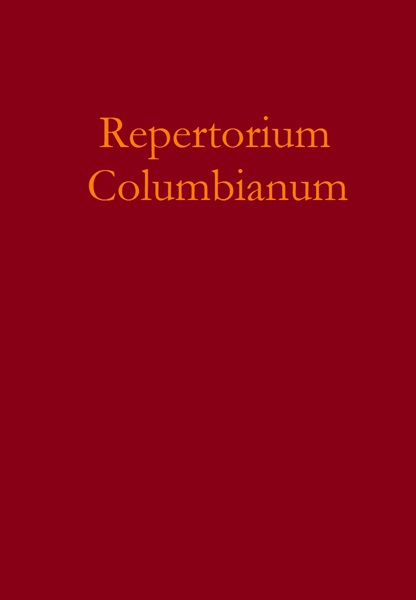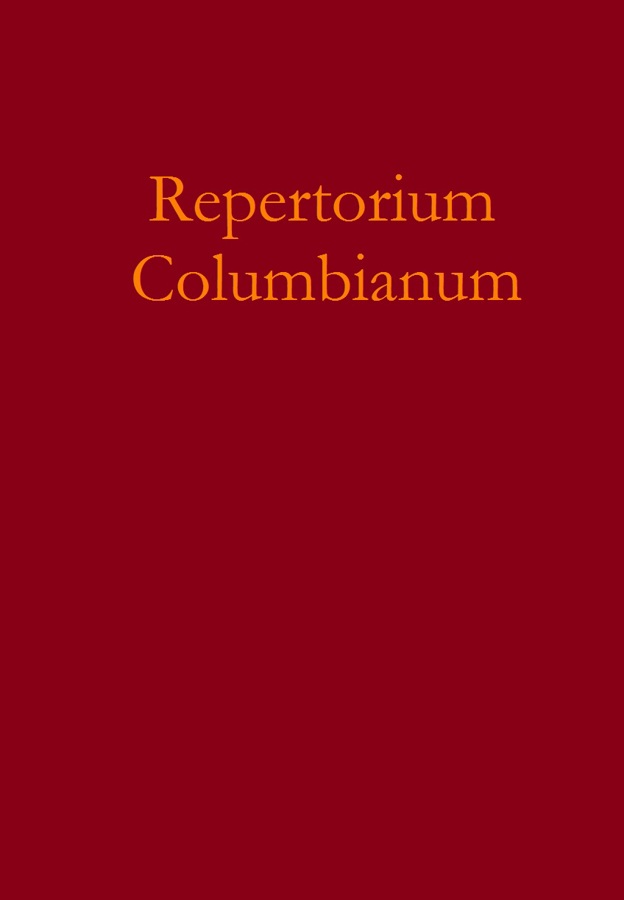
Las Casas on Columbus: The Third Voyage
Jesús M. Carrillo Castillo (ed)
- Pages: 334 p.
- Size:180 x 260 mm
- Illustrations:4 b/w
- Language(s):English
- Publication Year:2001
- € 25,00 EXCL. VAT RETAIL PRICE
- ISBN: 978-2-503-51181-8
- Hardback
- Available
This is an edition and translation of Las Casas’s narrative, transmitted in his Historia de las Indias, of Columbus’s third voyage in 1498–1500 to Trinidad and the Gulf of Paria.
" This edition is likely to become the standard for studies both on Columbus and Las Casas. " (A. Reid in Sixteenth Centurry Journal XXXIV/3, 2003, p. 819)
This edition and translation of Las Casas’s narrative, transmitted in his Historia de las Indias, of Columbus’s third voyage in 1498–1500 to Trinidad and the Gulf of Paria, then on to Hispaniola, completes the coverage of the Columbian voyages contained in volumes 6 and 7 of the Repertorium Columbianum. The narrative opens on a high note with the first European sighting of the mainland of South America, Columbus’s lyrical response to the beauty of its abundant flora and fauna, friendly encounters with the Indians of Paria, and intimations that the expedition might have stumbled onto the threshold of the earthly paradise. It closes, however, in a somber vein with what Las Casas aptly termed the “fall” of the admiral, who had been ousted from his governorship for mismanagement of the young colony and shipped home ignominiously to face an uncertain reception at the court of Fernando and Isabel. Las Casas’s commentary is largely centered on moral and political issues, particularly on the contradictory implications of Columbus’s actions: on the one hand as the explorer who opened up a new world for Christian evangelization, and on the other as the viceroy whose brutal and ineffective administration of this new world proved so disastrous for its indigenous inhabitants. The former he judges positively and the latter negatively, never mincing his words. Indeed, this fascinating text can be read as a dialogue between Las Casas and Columbus in which Las Casas constantly quotes the admiral’s letters and then glosses them with his own observations, guided by moral and eschatological themes.




